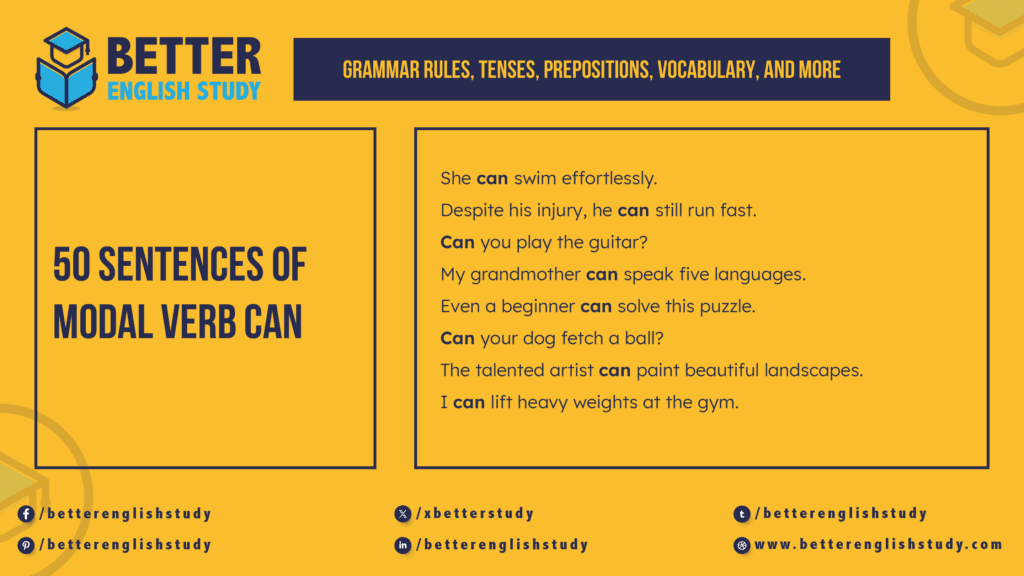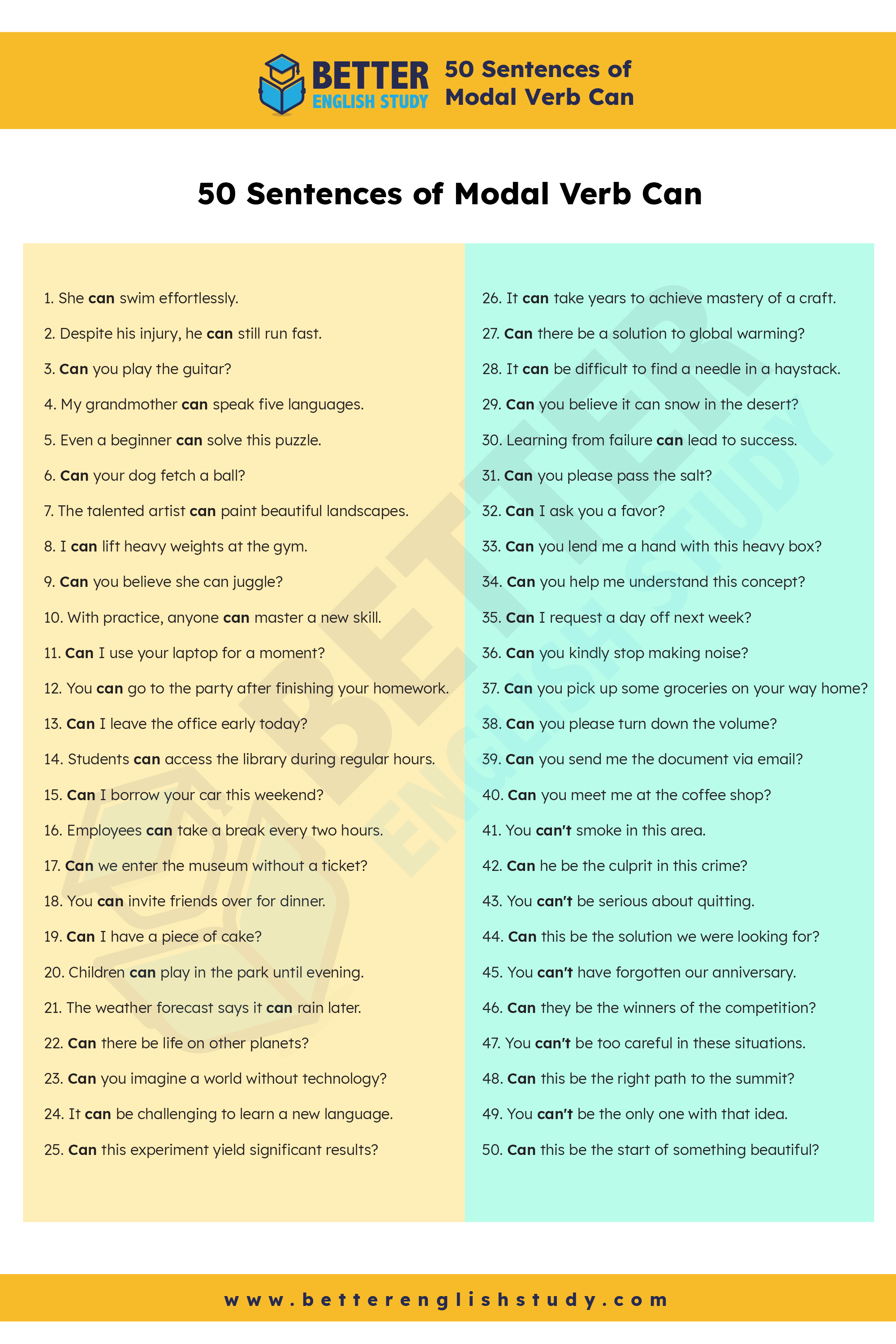
The modal verb “can” is a versatile and essential component of English, conveying various meanings related to ability, permission, and possibility. Understanding how to use “can” correctly can significantly enhance one’s communication skills.
In this article, we’ll explore 50 example sentences that showcase the different contexts in which “can” can be employed.
When to Use Can
Understanding when to use “can” is fundamental to using it correctly in sentences. Generally, “can” is employed to express one’s ability, capability, or permission to do something. Whether you’re describing a skill, asking for permission, or making a suggestion, “can” is your go-to modal verb. It adds flexibility to your communication, allowing you to convey potential and capability effectively.
Let’s see the examples for a better understanding.
1. Ability
- She can swim effortlessly.
- Despite his injury, he can still run fast.
- Can you play the guitar?
- My grandmother can speak five languages.
- Even a beginner can solve this puzzle.
- Can your dog fetch a ball?
- The talented artist can paint beautiful landscapes.
- I can lift heavy weights at the gym.
- Can you believe she can juggle?
- With practice, anyone can master a new skill.
2. Permission
- Can I use your laptop for a moment?
- You can go to the party after finishing your homework.
- Can I leave the office early today?
- Students can access the library during regular hours.
- Can I borrow your car this weekend?
- Employees can take a break every two hours.
- Can we enter the museum without a ticket?
- You can invite friends over for dinner.
- Can I have a piece of cake?
- Children can play in the park until evening.

3. Possibility
- The weather forecast says it can rain later.
- Can there be life on other planets?
- Can you imagine a world without technology?
- It can be challenging to learn a new language.
- Can this experiment yield significant results?
- It can take years to achieve mastery of a craft.
- Can there be a solution to global warming?
- It can be difficult to find a needle in a haystack.
- Can you believe it can snow in the desert?
- Learning from failure can lead to success.
4. Requests
- Can you please pass the salt?
- Can I ask you a favor?
- Can you lend me a hand with this heavy box?
- Can you help me understand this concept?
- Can I request a day off next week?
- Can you kindly stop making noise?
- Can you pick up some groceries on your way home?
- Can you please turn down the volume?
- Can you send me the document via email?
- Can you meet me at the coffee shop?
5. Prohibition and Deduction
- You can’t smoke in this area.
- Can he be the culprit in this crime?
- You can’t be serious about quitting.
- Can this be the solution we were looking for?
- You can’t have forgotten our anniversary.
- Can they be the winners of the competition?
- You can’t be too careful in these situations.
- Can this be the right path to the summit?
- You can’t be the only one with that idea.
- Can this be the start of something beautiful?
These 50 example sentences illustrate the diverse ways the modal verb “can” is used in English. From expressing abilities and seeking permission to exploring possibilities and making requests, “can” plays a crucial role in effective communication.
Mastering the nuances of “can” will undoubtedly enhance one’s language proficiency and provide a valuable tool for expressing thoughts and ideas in various contexts.
